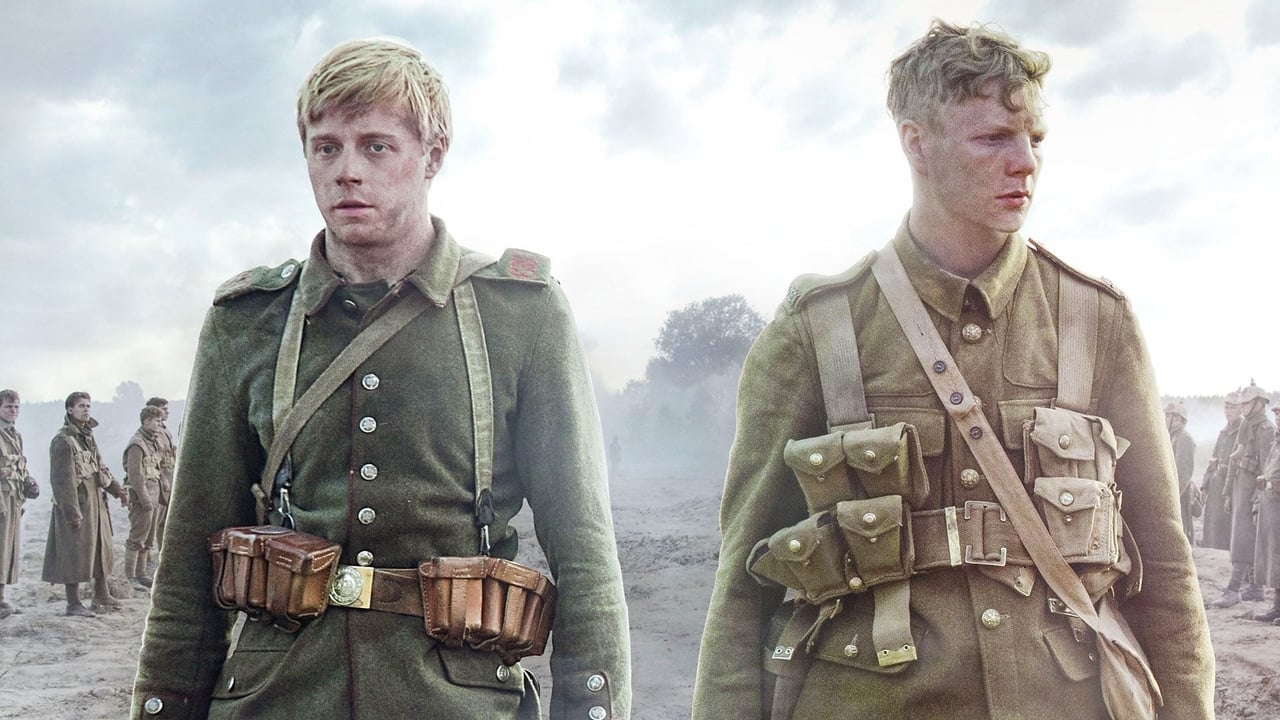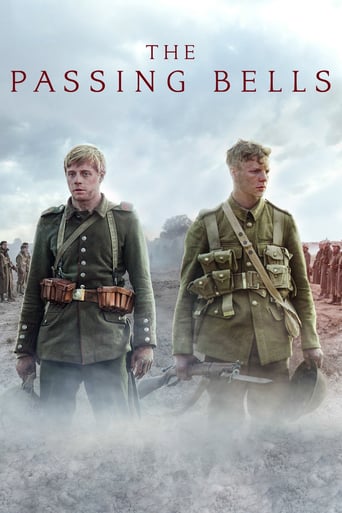

If your history of WWI was primarily from this TV show you'd probably believe that all the soldiers were 16-17 years old, widely engaged in premarital sex, and that the wars were fought almost exclusively in trenches, including right up to the very end. These are all things that yes, they did happen, but were rare, or happened at points and places in the war very different from that portrayed on-screen. At first I was concerned that the 30 minute format wouldn't allow them to tell the complex nuanced stories that were the reality of the war. By the end I was glad the stories were only 30 minutes long because they were having difficulty filling the time with anything not a blatant trope.Even if you ignore the history there's some serious structural problems. The German soldier's girlfriend/wife is a major character in the first few episodes before entirely disappearing. All of his home front scenes are about his parents and the wife appears only occasionally as a picture. Seems a little off.Also, you might recall that the french were a major player in WWI. Something that is sort of overlooked considering that there are almost no french characters, no french scenery, and really, that the western front is located across hundreds of miles of France is barely mentioned. Here's another specific inaccuracy: During early war when the first British reinforcements with our new recruit are deploying in the aftermath of the Marne they march through fields full of poppies. Fair enough, right? Poppies are the anglophile world's key floral symbol of The Great War. Except that after the Marne was September-October 1914 and Poppies bloom in the spring and early summer. They just didn't care.There is nothing in this show that has not been done better, elsewhere. What there is, is weak or remarkable for its inaccuracies.
... View MoreIt is interesting to read the negative reviews all seemed to be from males. As a female, I loved the whole series. I found the use of English, instead of bad tries at German by the actors, all the more believable. I could relate to the thoughts of the people, sons, brothers, lovers, husbands, mothers, with the same sounds as my own. It was refreshing to see war presented in not the blood and guts way that American Television portrays wars. Death was sudden and silent, an innovating look at this senseless war. The actors not being well known, made their characters all the more realistic. As time distances us from the real event, and the hatred of 'the enemy' is lost in new generations, the participants of both sides of a conflict should be seen as families, losing a much love member. Maybe in the future the population of countries will be able to raise their voices loudly against politicians who sit safely at home, while good men and women are sacrificed. I have visited Gallipoli and El Alamein and shed a tear, like I did while watching "The Passing Bells"
... View MoreI thought this was a good drama and am a little bit baffled as to why some people needed to see blood and guts to be entertained or convinced.Anyone who has studied or read about the history of WW1 would already understand about the horrors of trench life and going over the top into battle.The viewer doesn't need to be hit over the head with blood and gory details we can leave that to the imagination and besides too much graphic details would only detract away from the dialogue of this drama as this story relies mainly on its script of what the soldiers are saying{their thoughts aloud}and thinking.And i think it was awesome. Of course there is a lot we are not shown such as the grounds in the trenches were always muddy and fall of rats and body parts from dead soldiers used to prop or hang things from etc the list is endless of how things really were but then WW1 was always censored our government kept quiet for decades until the 1980s about the amount of soldiers whose bodies were still being found by farmers in France and Belgium,sometimes as many as a hundred a year.And also so many people were totally unaware of how many of our soldiers were cruelly shot at dawn or if they had even knew in the first place. I thought this was a nice tribute to the men who served and put the point across that it was the war that was evil and not the men who served.I think this drama is good for educating the younger generation who might not know much about WW1 as it portrays how misled the men back then were and how underage boys got sucked in on having to do their bit.Very tragic and its what this drama does well. The film Oh What A Lovely War was a British musical about WW1 this also didn't show blood and guts as everything was said in the dialogue in what the actors were saying.Passing Bells has used the same idea.
... View MoreThis is just awful-I appreciate that the time slot will constrain exactly what the film-makers can show, with the gore, the filth, the disease, and the horror all being toned down (although they don't seem to have the same qualms about showing sex), but the production is riddled with inaccuracies and inconsistencies-modern language (the term 'girlfriend' was unknown) and modern accents (I've yet to meet a German who speaks with an Estuarine accent, especially one from rural Germany), a complete glossing-over of both sides' arguments (whether right or wrong) for going to war, apart from a rather trite comment about the Belgians being 'our' friends, no general explanation of the real time situations in which the two volunteers find themselves (this may be a way of illustrating the common soldier's frustration with lack of information, but as a device for stimulating empathy and interest in younger viewers, it fails abysmally), and a maudlin obsession with sugar-coating even the bitterest pill... This is not supposed to be a Barbara Cartland novel, but an interpretation of the brutal realities of early 20th century warfare, and it's effect on its participants.The BBC has concentrated on it's PC agenda, showing the mêlée from both sides, and deliberately avoiding any specific finger-pointing, but in doing so, it has completely obliterated any chance of showing real human emotion and partisanship. Nationalism may be unfashionable today, but it was one of the major motivational factors used by both sides in recruiting to their cause. If this is supposed to be a vaguely factual account of the events from 1914-1918 (and as has been pointed out elsewhere, why does the strap-line talk about "spanning the five years of the First World War"), it shouldn't be prejudiced by modern sensibilities. My forbears fought on both sides of the Great War-this simplistic, dumbed-down soap opera is an insult to all of them. I shall keep watching until the end of the week, if only to see how much worse it can get, and shall append further brickbats as and when necessary-this was yet another waste of licence-payers' money!..
... View More